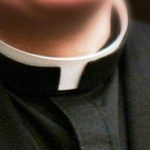Age Discrimination in Health Care
Among other things, the recent “death panel” controversy highlights our collective unease with the thought of elderly people being denied needed medical care based on someone else’s decision that their lives are not worth saving. Yet, even without death panels, much research demonstrates that the elderly already suffer a great deal of discrimination in the health-care system, from the use of demeaning or patronizing language by medical personnel to disqualification from experimental treatments to dismissive responses regarding health complaints. However, legal remedies for age discimination in health care have proven elusive.
Phoebe Weaver Williams explores ageism in health care, as well as potential remedies under the Age Act of 1975, in a pathbreaking new article recently published in the Marquette Elder’s Advisor. She argues that legal theories developed in connection with employment discrimination litigation, such as the hostile environment theory, might be adapted for use in the health-care context.
Entitled “Age Discrimination in the Delivery of Health Care Services to Our Elders,” Phoebe’s article was published at 11 Marq. Elder’s Advisor 1. The abstract appears after the jump.



